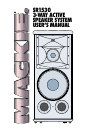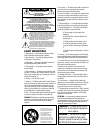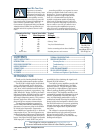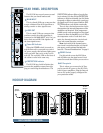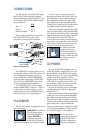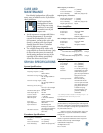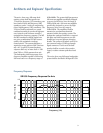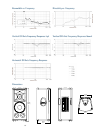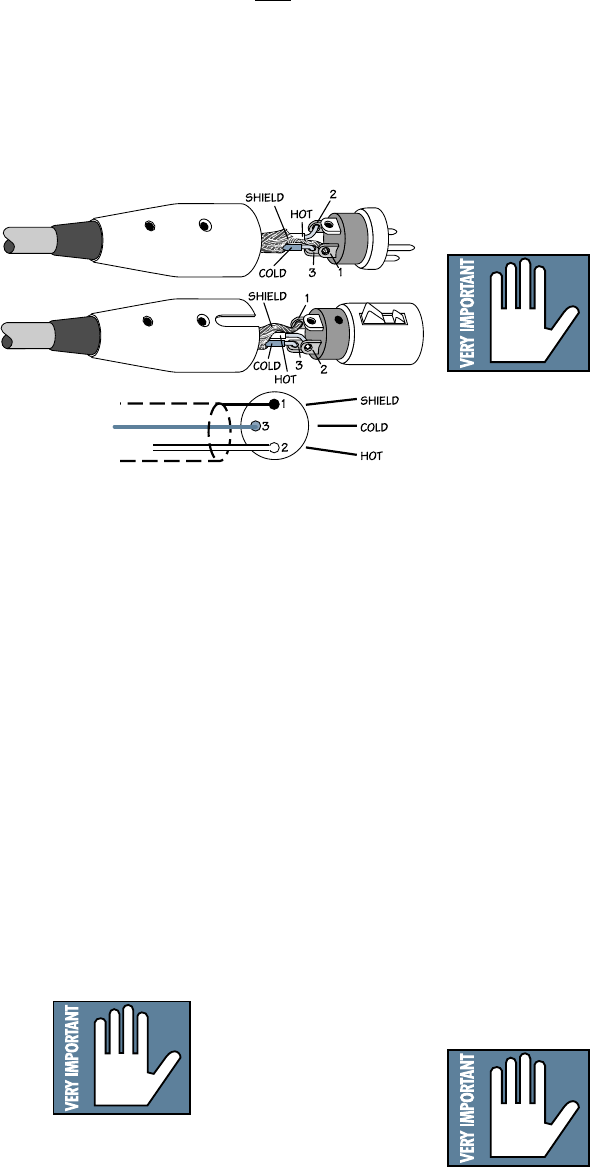
5
Balanced XLR Connectors
The
LOOP OUT
connector allows you to
connect more than one SR1530 to your sys-
tem. Simply plug the signal source (i.e.,
mixer output) into the first
MAIN INPUT
jack, and patch that speaker’s
LOOP OUT
jack to the next
MAIN INPUT
jack, and so
on, daisy-chaining multiple speakers.
The
LOOP OUT
jack is wired straight
from the
MAIN INPUT
connector — there is
no electronic circuitry between — so the
signal coming out of the
LOOP OUT
jack is
exactly the same as the signal going in.
CONNECTIONS
PLACEMENT
You can create a horizontal array by
placing the cabinets side-by-side. However,
you should have a good understanding of
the relationship between the splay angle
(the angle between the facing sides of the
cabinets), the on-axis power, and frequency
cancellation effects between cabinets.
When two cabinets are placed side-by-side,
the actual splay angle is 20º (determined by
a 10º angle on each cabinet side). As the splay
angle increases toward the angle of horizon-
tal coverage (90º for the SR1530), the
on-axis power decreases, but the frequency
response becomes smoother as the comb-fil-
tering effects (caused by the interaction in
the area of double-coverage) decrease.
As with any powered
components, protect
them from moisture. If
you are setting them up
outdoors, make sure they
are under cover if you
expect rain.
AC POWER
The SR1530 speaker is designed to sit on
the floor or stage.
WARNING: The cabinet
has no rigging points
and is not suitable for
rigging. NEVER at-
tempt to suspend the
SR1530 by its handles.
The SR1530 should never be pole-mounted.
The SR1530 has one female XLR input
that accepts a balanced line-level signal.
When connecting a balanced signal, be sure
it’s wired per AES (Audio Engineering So-
ciety) standards:
XLR
Hot (+) Pin 2
Cold (–) Pin 3
Shield (Ground) Pin 1
There is also a male XLR connector la-
beled
LOOP OUT
. This is also wired
according to the above AES standard.
Be sure the SR1530 is plugged into an
outlet that is able to supply the correct volt-
age specified for your model. If the voltage
should drop below 97% of the specified line
voltage, the built-in amplifiers will no
longer be able to supply rated power. (They
will continue to operate down to 80% of
the rated line voltage, but won’t reach full
power, resulting in lower headroom.)
Be sure the electrical service can supply
enough amperage for all the components
connected to it.
We recommend that a stiff (robust) supply
of AC power be used because the amplifiers
place high current demands on the AC line.
The more power that is available on the line,
the louder the speakers will play and the more
peak output power will be available for
cleaner, punchier bass. A suspected problem
of “poor bass performance” is often caused
by a weak AC supply to the amplifiers.
Never remove the
ground pin on the power
cord of the SR1530 or
any other component.
This is very dangerous.



